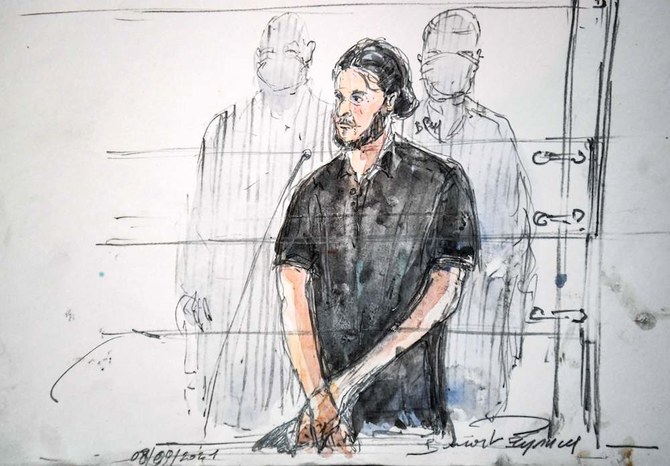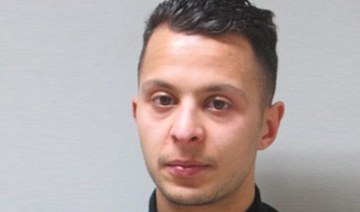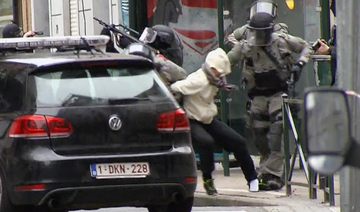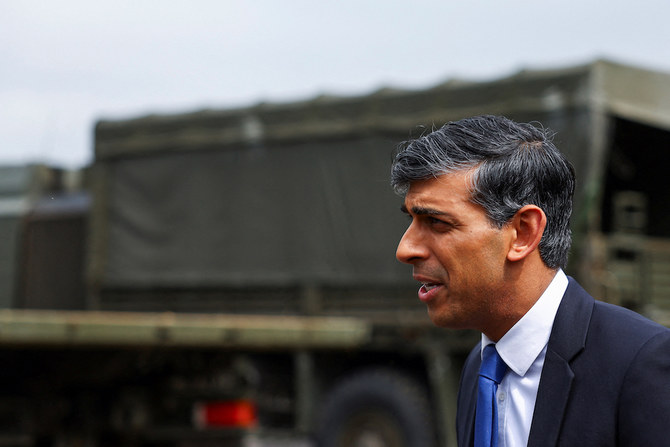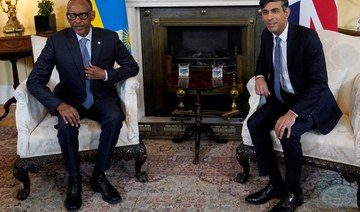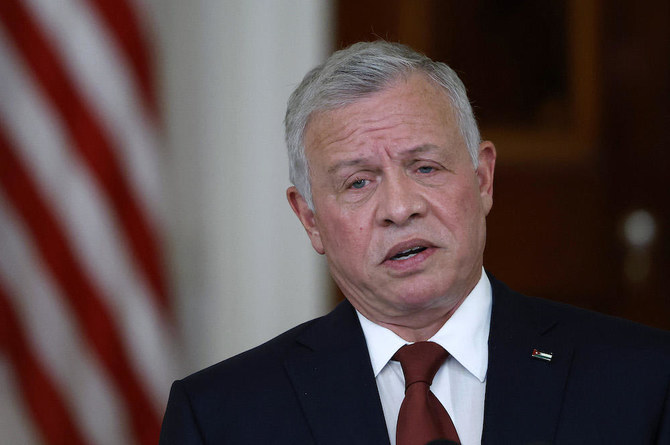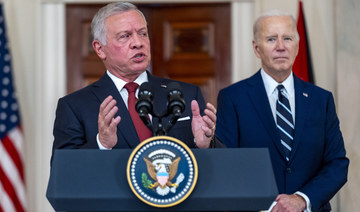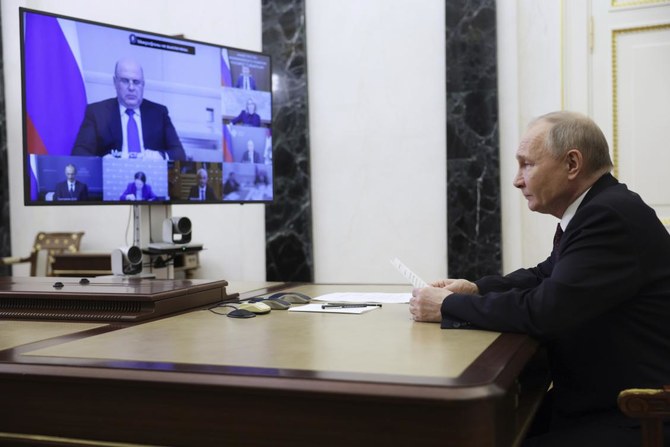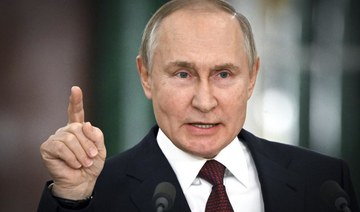PARIS: The first day of a trial over a jihadist rampage in 2015 that killed 130 people was briefly disrupted on Wednesday when the main suspect shouted at the judge that he and fellow defendants were "being treated like dogs, broadcaster BFM TV reported.
Salah Abdeslam began shouting as the court re-convened following a suspension when one of his co-defendants took ill. The judge presiding over the hearing ordered Abdeslam to be quiet, according to BFM TV's reporter at the courthouse.
France on Wednesday opened the trial of 20 men accused in the Daesh group’s 2015 attacks in Paris that left 130 people dead and hundreds injured.
Nine gunmen and suicide bombers struck within minutes of each other at France’s national soccer stadium, the Bataclan concert hall and Paris restaurants and cafes on Nov. 13, 2015. Survivors of the attacks as well as those who mourn their dead packed the rooms, which were designed to hold 1,800 plaintiffs and over 300 lawyers.
The lone survivor of the extremist cell from that night, Salah Abdeslam, is the key defendant. Abdeslam, whose brother was among the suicide bombers that night, appeared wearing a black short-sleeved shirt and black trousers, his long hair tied back.
He was the first asked to identify himself and, after intoning a prayer, requested to state his profession, declared he was “a fighter for Islamic State.”
Abdeslam is the only one charged with murder. The same Daesh network went on to strike Brussels months later, killing another 32 people.
The presiding judge, Jean-Louis Peries, acknowledged the extraordinary circumstances of the events of that night and the nine-month trial to come.
“The events that we are about to decide are inscribed in their historic intensity as among the international and national events of this century,” he said.
Dominique Kielemoes, whose son bled to death at one of the cafes, said the month dedicated to victims’ testimonies at the trial will be crucial to both their own healing and that of the nation.
“The assassins, these terrorists, thought they were firing into the crowd, into a mass of people. But it wasn’t a mass — these were individuals who had a life, who loved, had hopes and expectations, and that we need to talk about at the trial. It’s important.” she said,
Twenty men are charged, but six of them will be tried in absentia. Abdeslam, who abandoned his rental car in northern Paris and discarded a malfunctioning suicide vest before fleeing home to Brussels, has refused to speak with investigators. But he holds the answers to many of the remaining questions about the attack and the people who planned it, both in Europe and abroad.
The modern courtroom was constructed within the storied 13th-century Palais de Justice in Paris, where Marie Antoinette and Emile Zola faced trial, among others.
For the first time, victims can also have a secure audio link to listen from home if they want with a 30-minute delay.
The trial is scheduled to last nine months. The month of September will be dedicated to laying out the police and forensic evidence. October will be given over to victims’ testimony. From November to December, officials including former French President François Hollande will testify, as will relatives of the attackers.
Abdeslam will be questioned multiple times. He has so far refused to talk to investigators.
The attacks transformed France, which declared a state of emergency that night and now has armed officers constantly patrolling public spaces. And it changed forever the lives of all those who suffered losses or bore witness to the violence that night.
“Our ability to be carefree is gone,” Kielemoes said. “The desire to go out, travel – all of that’s gone. Even if we still do a number of things, our appetite for life has disappeared.”
For Jean-Luc Wertenschlag, who lives above the cafe where her son died and who rushed downstairs soon after the first gunshots to try and save lives, it has even changed the way he moves around the city where he was born and raised. He never leaves home without the first aid gear he lacked that night, when he ripped off his shirt to stanch the bleeding of a victim.
“What we did that evening with other people, to provide assistance to the people wounded during the attack, was a way to stand against what these monsters had tried to do to us,” he said.
Among those scheduled to testify is then-President Francois Hollande, who was at the Stade de France at the moment it was attacked and who gave the final order to police special forces to storm the Bataclan.
Hollande said Wednesday he would speak “not for the sake of French politics, but for the victims of the attacks.” He said he keenly felt the weight of responsibility that night and for the days and weeks later in the aftermath of the attack.
“When the cameras are turned off, you go back to the solitude of the Elysée (presidential palace),” Hollande told told France-Info. “You ask what can I do? ... Is what just happened going to change society?”
None of the proceedings will be televised or rebroadcast to the public, but they will be recorded for archival purposes. Video recording has only been allowed for a handful of cases in France considered to be of historical value, including last year’s trial for the 2015 attacks against the Charlie Hebdo newspaper in Paris and a kosher supermarket.




